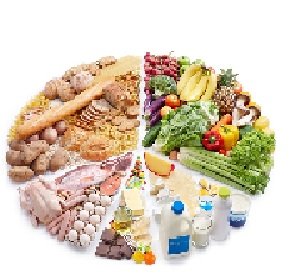Vitamins, dietary minerals and trace elements are essential to the healthy function of the human body. Vitamins are organic compounds that are vital to, but, not produced by the body, so have to be obtained through the diet. Similarly dietary minerals, e.g. calcium and phosphorous, and trace elements, (of which even smaller amounts are required), e.g. zinc and selenium are acquired through food For the majority of people, a balanced, nutritious diet satisfies the body’s vitamin and mineral requirements.

There a two types of vitamins, fat soluble and water soluble. Fat soluble vitamins are found mainly in fatty food and animal products, e.g. oils, butter, eggs, liver, oily fish etc. Whilst the body constantly requires tiny quantities of these vitamins, it is not essential to consume them every day because they are stored in the liver and fatty tissue, for use when required. Large doses of fat soluble vitamins can be harmful, although this is not likely to happen, except if higher than recommended doses are taken by supplementation. Water soluble vitamins are found in a wide range of foods, including vegetables, fruit, potatoes, grains and dairy food. This type of vitamin is less stable; often destroyed by heat or air, cannot be stored by the body. Excess water soluble vitamins are excreted in urine. Therefore foods containing water soluble vitamins are needed more often, to maintain the supply. Water soluble vitamins a generally less harmful, but very high doses may have an adverse impact.

Dietary minerals and trace elements have three main functions, building strong bones and teeth, regulation of fluid inside and surrounding cells, and converting food to energy. High doses taken over a long period can be harmful.
Despite the fact that a varied healthy diet is all that is necessary for most people, supplementation is increasing, although there is no real evidence that taking “extra” vitamins and minerals has any real benefit. In addition to lack of proven efficacy, the manufacture of dietary supplements is not regulated anywhere near as stringently as that of medicines. This is because they are not classified as a food or drug, and are not permitted to make any health claims, and no clinical trials are required. Many supplements are manufactured by synthetic methods; contain additives such as sweeteners, and their bioavailability can be lower, than when taken from a natural food source.